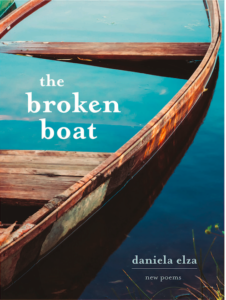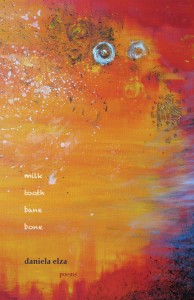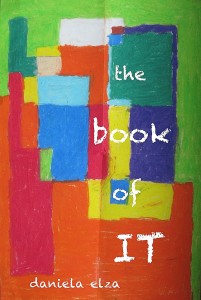of infinities and affinities
Posted by Daniela Elza on Dec 15 2008
On and onward with my readings and ponderings on bridging the gaps between…
of orders old and new.
of the infinities of thought
and of our affinities within which we grow and hopefully stretch into our potentials.
“The painter, the poet, the philosopher and natural scientist each try to make their cosmos and its construction the pivot of their emotional life.” —Einstein in Idea and Opinions
We create ours and others’ cosmoses. We are actively doing that everyday, whether we acknowledge that or not. Why not be aware of it? Are you? I am becoming aware. Cannot say I always succeed. But a moment of awareness is a big step in that direction. As you sit and do what you are doing, how is it going? Are you loving it? Are you questioning yourself? And when you answer yourself, is it for a worthy cause or reason? Are you an observer? Are you a participant? Or are we fooling ourselves to death? Where does your gaze rest? Where is your horizon, where is your strive, and where do you find your infinity?
“But in Einstein’s time and still today, the sea is the only physical encounter we have that represents infinity. To look at the night sky is to be an observer. When you are in the sea, you are a participant, a swimmer in all the seas of the world. At a sufficient distance from land, there is no distance, no time, no colour, no direction that is not property of the sea. The sea is time and space, thing and thought, environment and element. Alone in the vastness of the sea is where reason yields most easily to an extatic awareness of the world-signal, where logic takes its rest on the threshold of the unknowable, infinitely curving paths on the space time continuum, the darkness quietly lapping in with the tide, into the caldera of the skull, closing the gap between the world and the word. This space is where artist live.” —Mathew Ritchie
(from his essay in Einsten for the 21st century: His legacy in science art and modern culture (2008)).
And is this sea, metaphorical or not, something of a concern when we do not take good care of it? Would we experience the same infinity and mystery if we know how much we pollute these infinite spaces. And how come, no matter how hard you try and how well you do your job, or vocation, the prognosis still looks grim? As if all together we have got it wrong?
Here in North America our ways have outlived themselves, and clearly new orders, new loyalties, new horizons are needed. Unchecked, and unthinking TV is as much a pollutant of the mind, as unchecked industry and human pollution is to the seas and oceans. Even though I do not subscribe to the consumer-gone-to-sleep philosophy I live amidst it and more and more feel life out of wack with what matters. And when I hear on the radio that, really, it is the consumer’s fault that the economy is tanking I am not sure how this system has lasted this long or who is fooling who?
In the death throes and the rigor mortis that follows, how much do we cling to what has proven, over and over, to distance us from ourselves, and from each other. This slavery is kind of seductive. But it is slavery nevetheless. Look around your house and get to know the masters you bow to, the “objects” you serve.
***
Dudley Herschbach has an essay on Einstein as a student (in Einstein for the 21st century mentioned above). After looking at Einstein’s life and its chronologies etc. he comes up with five aspects (he elaborates on each one of them) that may help in considering educating students at different levels, including encouraging academic faculties to consider that. Here are the five components:
1. early enchantment
2. confident sense of mission
3. freedom for solo initiatives
4. supportive friends
5. cultural resonance
Einstein considered an education toward free action and personal responsibility superior to one that relies on outward authority and ambition. He also said within that context that “true democracy is no empty illusion.”
Free action and personal responsibility have to go hand in hand. I wonder if we have simplified and infantilized and consumerized freedom to the point where we forget the huge responsibility that goes with it. I am curious if any institution (and I am mostly thinking of schools) can cater to these five aspects. In my experience with my children I can see (looking back) how this happens in the home, it is a natural evolution, and child driven. If one can see that, and act on it that is an amazing gift a parent can give a child. Occasionally, you come across a teacher who can and does support that in the school setting.
How did I end up here, from where I started? Maybe because Writing is an act of practicing my freedom?
Such are my thoughts on this cold and sunny Monday. Freedom, it seems, is not something that is given, it is something you take, by practicing. And so is democracy, by participating. One person at a time. Yet, it is a gamble if you will have enough support and cultural resonance out there to keep you going. But you will never know if you do not try.




